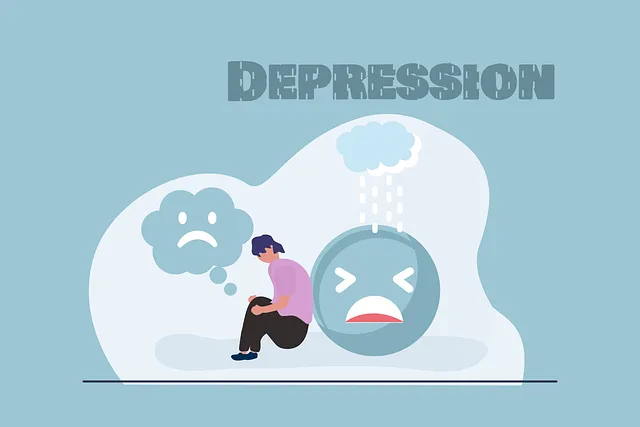Northglenn Kaiser Permanente psychiatry reviews underscore high burnout rates among healthcare providers, attributed to heavy caseloads and emotional strain. To counter this, the facility implements preventative measures like conflict resolution training, risk management planning, and self-care initiatives, improving provider resilience and patient care outcomes. These strategies, as evidenced by the reviews, foster a supportive work environment, boost job satisfaction, and enhance the quality of psychiatric care.
“In the demanding landscape of healthcare, provider burnout is a growing concern, as evidenced by recent Northglenn Kaiser Permanente psychiatry reviews. This article delves into understanding and tackling this issue head-on. We explore strategies to prevent and mitigate burnout among healthcare providers, focusing on practical tips for maintaining mental well-being. Additionally, we highlight the crucial role organizations play in fostering supportive environments that reduce burnout rates.”
- Understanding Burnout Among Healthcare Providers: The Northglenn Kaiser Permanente Psychiatry Perspective
- Strategies for Prevention and Mitigation: Practical Tips for Mental Well-being
- Fostering a Supportive Environment: The Role of Organizations in Burnout Reduction
Understanding Burnout Among Healthcare Providers: The Northglenn Kaiser Permanente Psychiatry Perspective

Burnout among healthcare providers is a growing concern, particularly within the psychiatric field. Northglenn Kaiser Permanente psychiatry reviews consistently highlight high rates of burnout, emphasizing the need for comprehensive strategies to support mental health professionals. This issue stems from various factors such as heavy caseloads, long working hours, and emotionally demanding patient interactions. Recognizing these challenges, healthcare organizations like Kaiser Permanente are increasingly focusing on prevention through programs aimed at fostering inner strength development in their psychiatry teams.
The Northglenn facility specifically has implemented initiatives to enhance conflict resolution techniques and risk management planning for mental health professionals. These strategies not only help providers manage workplace stressors but also improve patient care by enhancing resilience and coping mechanisms. By investing in these initiatives, Kaiser Permanente aims to create a supportive environment that nurtures the well-being of its psychiatrists and ultimately benefits the patients they serve.
Strategies for Prevention and Mitigation: Practical Tips for Mental Well-being

Preventing burnout among healthcare providers is a multifaceted approach that prioritizes mental well-being. At Northglenn Kaiser Permanente, psychiatry reviews play a crucial role in identifying early warning signs and implementing targeted interventions. Beyond individual assessments, practical strategies for prevention include integrating robust risk management planning for mental health professionals. This involves setting clear boundaries, encouraging self-care practices, and providing access to peer support networks.
Furthermore, cultivating social skills training and cultural sensitivity in mental healthcare practice is essential. Building strong connections with patients from diverse backgrounds fosters a supportive environment, reduces stress, and enhances job satisfaction. Combining these approaches—from individual therapy and risk management planning to enhanced interpersonal skills and cultural competency—can create a more sustainable and resilient healthcare workforce.
Fostering a Supportive Environment: The Role of Organizations in Burnout Reduction

Organizations play a pivotal role in fostering a supportive environment that can significantly reduce healthcare provider burnout. Northglenn Kaiser Permanente psychiatry reviews highlight successful strategies implemented within the organization, such as encouraging open communication channels and providing ample resources for stress management. These initiatives ensure that providers feel valued and supported, which boosts their confidence and job satisfaction.
By prioritizing employee well-being, organizations can implement various stress reduction methods tailored to the unique needs of healthcare professionals. This may include flexible work arrangements, regular team-building activities, access to mental health services, and ongoing professional development opportunities. These measures create a culture where burnout is not just addressed but actively prevented, thereby enhancing overall job performance and patient care outcomes as evidenced by Northglenn Kaiser Permanente psychiatry reviews.
Healthcare provider burnout is a significant concern, but through understanding and implementing effective strategies, organizations like Northglenn Kaiser Permanente can foster a supportive environment. By prioritizing mental well-being with practical tips and fostering a culture of support, healthcare providers can mitigate burnout and improve patient care. These strategies, backed by the insights from Northglenn Kaiser Permanente’s psychiatry perspective, offer a comprehensive approach to addressing this pressing issue in the medical field.




